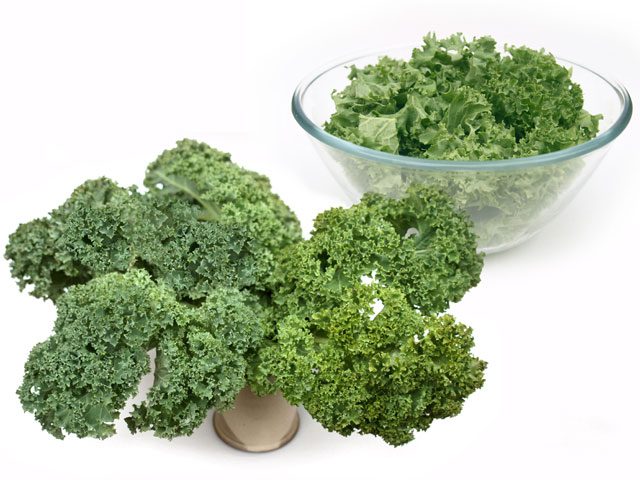Navigating the Plant-Based Diet

By Tara Postnikoff

Following a vegan diet doesn’t necessarily mean being healthy. In fact, there can be just as many nutritional pitfalls in a plant-based diet as in an omnivorous one. TMC has profiled veganism and highlighted a number of successful vegan athletes, including Brendan Brazier. Given the restrictive nature of a vegan diet, it might be hard to imagine that Hillary Biscay, a prolific pro triathlete, is vegan. In order to fuel what it takes to do 61 Iron-distance races, Biscay, like triathlon great Dave Scott before her, must be diligent about getting the nutrients and calories she needs.
Veganism excludes all animal products, including eggs, cheese, yogurt, butter or other milk products. A whole-food, plant-based diet tends to be heavy in nutrient-dense foods, with little to no packaged or processed foods. Yet, a vegan diet can harbour just as many processed foods including refined carbs as an omnivorous one. If over-consumed, these can wreak havoc on your blood sugar balance, cortisol levels, moods and weaken your immune system.
Most athletes know that proper nutrition contributes to optimal athletic performance. Plant-based diets are said to reduce inflammation, speed recovery, reduce stress and promote general health. However, strict adherence to a plant-based diet can be challenging and requires a lot of organization and careful preparation to ensure the proper balance of nutrients.
Plant-based coach and triathlete Eric D’Arcy and his wife Sue Sitki say that as athletes their biggest challenges are “eating out and eating on the run, especially if you don’t know where to go.” They have a couple go-to restaurants that focus on vegetarian and Mediterranean foods if they want to eat out and, when headed to a new place have had some luck asking for special food substitutions off a conventional menu. But they must be careful not to always rely on vegan meal replacement products when they are tired or short on time. When asked why they follow a plant-based diet, the couple insist that they feel better, have more vitality, sleep better and have less cravings. They also insist that the diet’s anti-inf lammatory properties helps relieve the pain of chronic injury.
Tommy Ferris, triathlete and owner of Ignition Fitness has focused on raw, plant-based whole foods for nearly 10 years. He switched to this diet in an effort to reduce stress and fatigue, and noticed a difference almost immediately. “Satisfying my hunger is my biggest struggle,” Ferris said. “But focusing on nuts, seeds and avocados (which are high in healthy fats) manages my fierce appetite.” When excluding most or all animal products triathletes should be aware that they may be at risk for deficiencies in calories, protein, iron, calcium, vitamin D and vitamin B-12.
Calories
Consume the right quantity and quality of foods to meet your athletic demand. Fresh vegetables and fruits, legumes, lentils, whole grains, nuts, seeds and essential fatty acids are key components of a healthy plant-based diet.
Protein
Athletes need on average 1.1 to 1.5 g of protein per kg of body weight per day. To combine plant protein sources properly to provide the body with the eight essential amino acids (protein building blocks) it requires for normal body function. Grains, nuts and seeds are low in essential amino acids lysine and isoluecine, whereas legumes are low in essential amino acids tryptophan and methionine. Consume both grains and legumes throughout the day so the body has the materials it needs for growth and repair.
Iron
Iron is important for oxygen transfer in the blood and muscles. Vegans are at risk for low iron levels because the type of iron found in plant sources is more difficult to absorb than the type found in animal sources. Furthermore, athletes, especially females, are typically at risk for low iron levels, due to increased needs associated with activity as well as due to blood loss from menstruation. To increase iron absorption, blanche vegetables prior to eating and soak whole grains prior to cooking. To help with plant-based iron absorption, consider squeezing fresh lemon juice over dark green vegetables.
Vitamin B-12
Typically low in vegan diets, B-12 is also easily depleted by drugs, alcohol, caffeine, nicotine and an excessive intake of refined carbohydrates. Often called the “energy vitamin,” B-12 is essential for the health of the nervous system and the formation of red blood cells (oxygen carriers). While low levels B-12 may be found in chlorella, miso and nutritional yeast, it is typically necessary to supplement B-12 in order to maintain optimal levels.
Vitamin D
Vitamin D is necessary for calcium absorption. However plants contain low levels of vitamin D. Nutritional yeast and exposure to some sunlight are the best sources for vegans, but supplementation can help in reaching optimal levels.
Calcium
Athletes can require increased calcium. Strenuous exercise can reduce calcium assimilation. High training volume demands increased muscle contraction and also increases bone density, requiring increased calcium to support this growth. The best non-dairy sources of calcium include: kelp, dark-green leafy vegetables such as kale, nuts, sesame seeds and tahini.
Ready To Try a Plant-Based Diet?
As a triathlete, any diet you choose should be as natural as possible, due to the increased demands you place on your body. It should be low in processed and packaged foods, and high in nutrient-dense foods, that is, foods that help maximize your nutrition per caloric unit. Vegetables and fruits offer key vitamins and minerals, enzymes and fibre that are necessary for proper health. Ultimately, what you choose to eat is more important than your diet label, so whether you are a vegan or a meat eater, make sure your diet is loaded with fresh produce and whole foods on a daily basis to improve health and athletic performance.
Tara Postnikoff is a registered nutritional consultant, triathlon coach and personal trainer.
